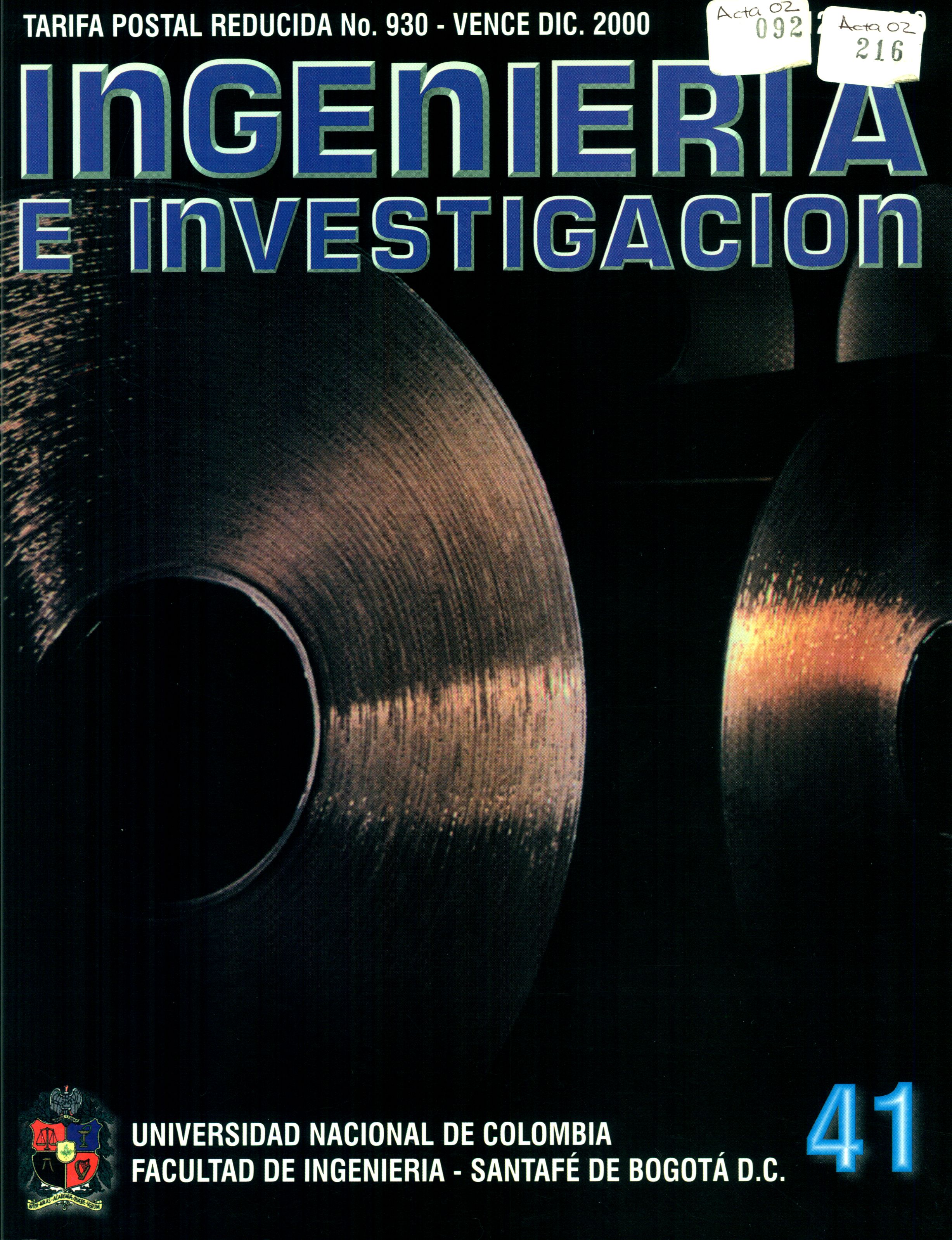Análisis de sistemas de potencia con Matlab
DOI:
https://doi.org/10.15446/ing.investig.n41.21052Keywords:
Análisis de circuitos eléctricos, Análisis de sistemas de potencia, Sistemas de energía eléctrica, Modelos matemáticos (es)Electrical circuit analysis, Power system analysis, Power systems, Mathematical models (en)
Downloads
En este trabajo se presenta una caja de herramientas para el análisis de sistemas de potencia utilizando MATLAB. Las herramientas desarrolladas permiten realizar análisis de flujo de carga, de cortocircuito, tanto balanceados como desbalanceados y simular el comportamiento dinámico de un sistema de potencia durante una perturbación grande. Para esta última aplicación se consideran modelos simples o complejos para las máquinas sincrónicas, lo cual permite analizar sistemas reales. Además, se describen algunas técnicas para adecuar los métodos de solución a las características del MATLAB.
References
Anderson, P.M., Analysis of Faulted Power System. The Iowa State University Press. Iowa. 1973
Barón, A., Flórez, L. Introducción al análisis de sistemas de potencia. Vol 1,2,3. Universidad Nacional de Colombia, Bogotá.
Byerly,R.T., Kimbark, E. Stability of Large Electric Power Systems. IEEE Press. N.Y. 1974.
Elgerd, O. Electric Energy Systems Theory: An Introduction, McGraw- Hill. N.Y., 1971
Pai, MA Computer Techniques in Power System Analysis. McGraw - Hill. Nueva Delhi, 1979.
Robert, A., Amerongen, Van. “A general purpose version of the fast decoupled loadflow”. IEEE Trans. On power systems. Vol. 4, pp. 760-770, may 1989 DOI: https://doi.org/10.1109/59.193851
Saavedra, O.R., Garcia, A., Monticelli, A. “The representation of shunt elements in fast decoupled power flows”. IEEE Trans, On power Systems. Vol. 9, pp. 1434-1440, August, 1994. DOI: https://doi.org/10.1109/59.336120
Stagg, G.W., Elabiad, A.H. Computer Methods in Power Systems Analysis. McGraw - Hill. New York, 1968.
Stott, B. “Power systems dynamic response calculations”. Proceeding of the IEEE. Vol 67, No. 2, February 1979, pp. 219 - 240. DOI: https://doi.org/10.1109/PROC.1979.11233
Stoot B., Alsac, O. “Fast decoupled load flow”. IEEE Transactions on Power Apparatus and Systems. Vol. PAS - 93, pp. 859 - 869, 1974. DOI: https://doi.org/10.1109/TPAS.1974.293985
How to Cite
APA
ACM
ACS
ABNT
Chicago
Harvard
IEEE
MLA
Turabian
Vancouver
Download Citation
CrossRef Cited-by
Dimensions
PlumX
Article abstract page views
Downloads
License
Copyright (c) 1998 Estrella Parra, Hernando Díaz, Andrei Romero, Aldemar Guerra

This work is licensed under a Creative Commons Attribution 4.0 International License.
The authors or holders of the copyright for each article hereby confer exclusive, limited and free authorization on the Universidad Nacional de Colombia's journal Ingeniería e Investigación concerning the aforementioned article which, once it has been evaluated and approved, will be submitted for publication, in line with the following items:
1. The version which has been corrected according to the evaluators' suggestions will be remitted and it will be made clear whether the aforementioned article is an unedited document regarding which the rights to be authorized are held and total responsibility will be assumed by the authors for the content of the work being submitted to Ingeniería e Investigación, the Universidad Nacional de Colombia and third-parties;
2. The authorization conferred on the journal will come into force from the date on which it is included in the respective volume and issue of Ingeniería e Investigación in the Open Journal Systems and on the journal's main page (https://revistas.unal.edu.co/index.php/ingeinv), as well as in different databases and indices in which the publication is indexed;
3. The authors authorize the Universidad Nacional de Colombia's journal Ingeniería e Investigación to publish the document in whatever required format (printed, digital, electronic or whatsoever known or yet to be discovered form) and authorize Ingeniería e Investigación to include the work in any indices and/or search engines deemed necessary for promoting its diffusion;
4. The authors accept that such authorization is given free of charge and they, therefore, waive any right to receive remuneration from the publication, distribution, public communication and any use whatsoever referred to in the terms of this authorization.




























